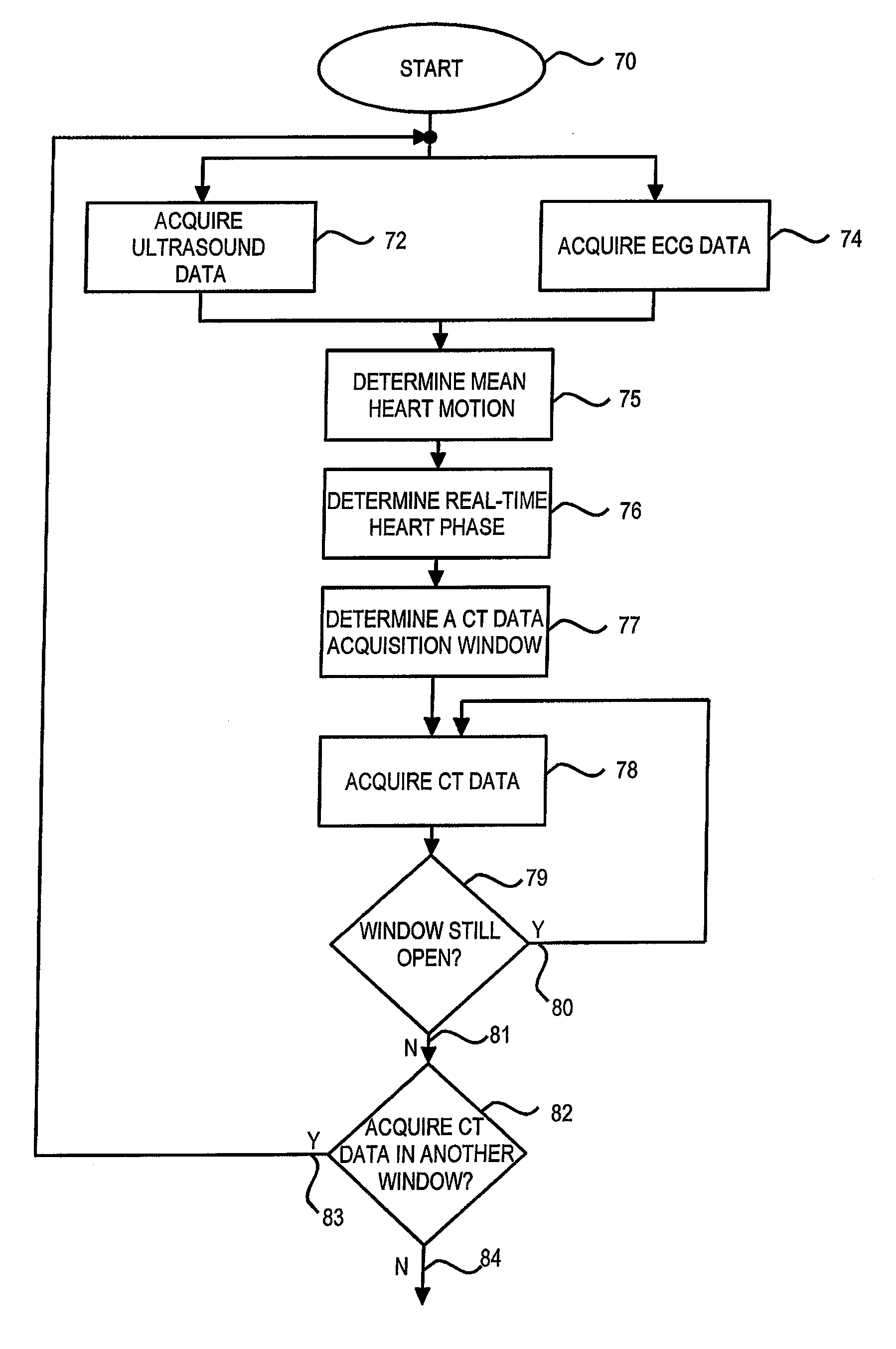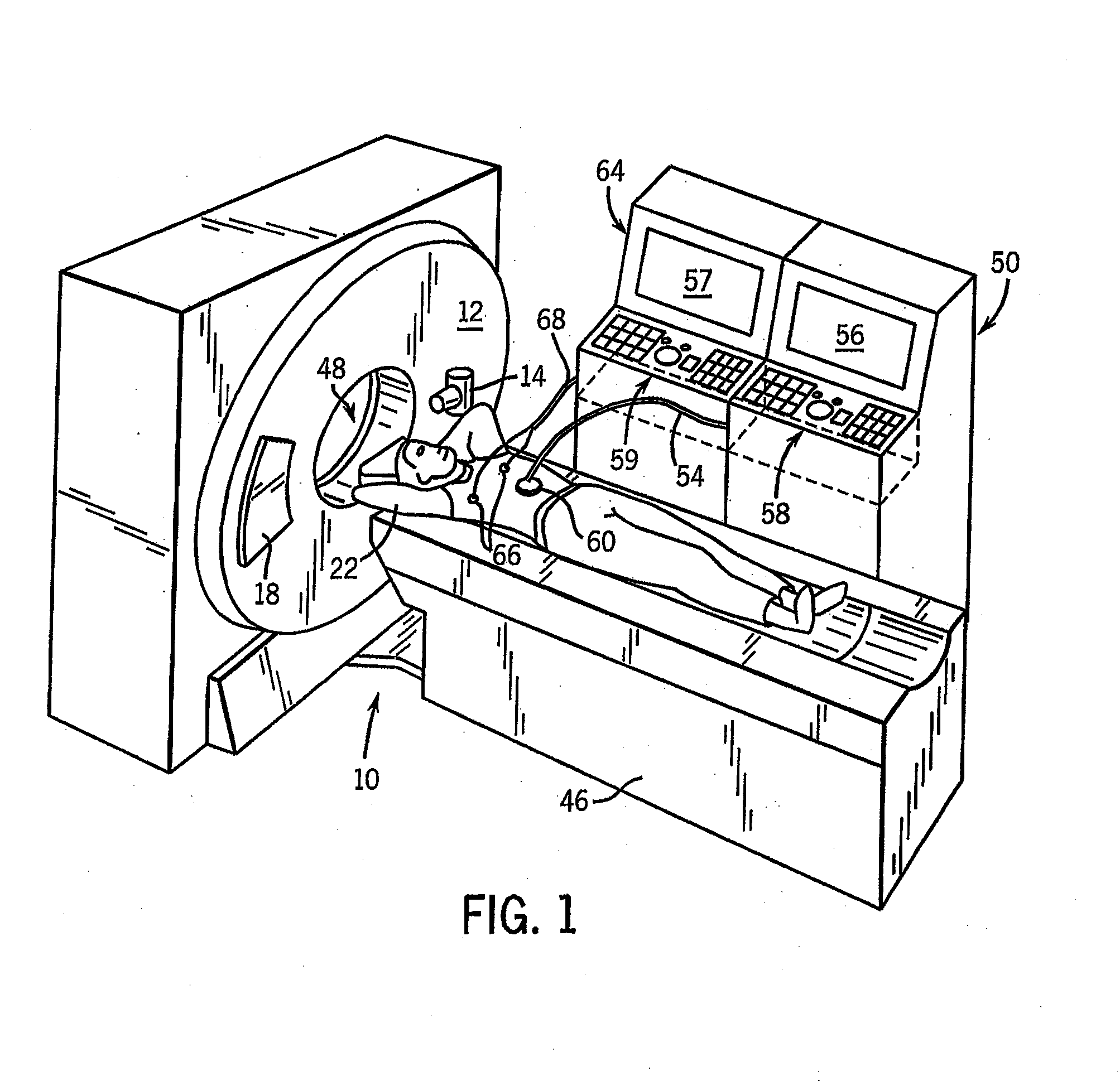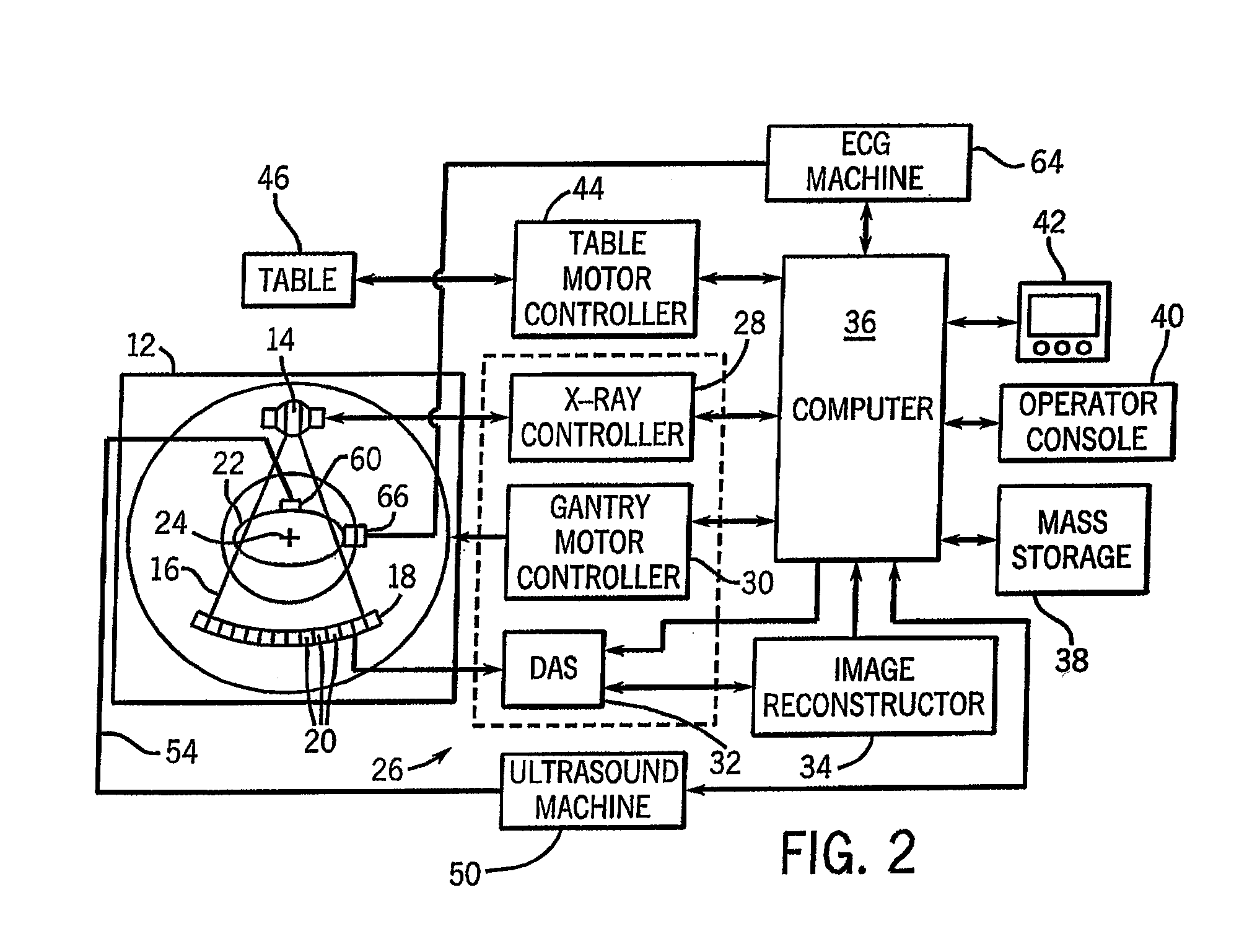Method and apparatus of ct cardiac diagnostic imaging using motion a priori information from 3D ultrasound and ECG gating
a technology of motion information and ct cardiac diagnostic imaging, applied in the field of diagnostic imaging, can solve the problems of significant time required to collect a complete set of projection data, motion correction or compensation can add significant complexity in post processing of images, and conventional ecg gating described above does not provide mechanical motion detection
- Summary
- Abstract
- Description
- Claims
- Application Information
AI Technical Summary
Benefits of technology
Problems solved by technology
Method used
Image
Examples
Embodiment Construction
[0018]The present invention is directed to a method and apparatus for acquiring heart motion and heart phase data, and using this data to prospectively acquire CT imaging data of the heart. The heart motion data and heart phase data are also used for motion correction or compensation of the imaging data and for facilitating reconstruction of a CT image.
[0019]The present invention will be described with respect to a “third generation” CT scanner, but is equally applicable to other generations of CT system, as well as with other imaging modalities. Moreover, the present invention will be described with respect to an imaging system that includes a CT scanner that acquires image data, an ECG machine that acquires cardiac electrical data, and an ultrasound machine that acquires cardiac motion data from a patient. The CT scanner, ECG machine, and ultrasound machine are stand-alone devices that can be used independently from one another, but, as will be described, are configured to operate...
PUM
| Property | Measurement | Unit |
|---|---|---|
| fan angle | aaaaa | aaaaa |
| CT | aaaaa | aaaaa |
| ultrasound machine | aaaaa | aaaaa |
Abstract
Description
Claims
Application Information
 Login to View More
Login to View More - R&D
- Intellectual Property
- Life Sciences
- Materials
- Tech Scout
- Unparalleled Data Quality
- Higher Quality Content
- 60% Fewer Hallucinations
Browse by: Latest US Patents, China's latest patents, Technical Efficacy Thesaurus, Application Domain, Technology Topic, Popular Technical Reports.
© 2025 PatSnap. All rights reserved.Legal|Privacy policy|Modern Slavery Act Transparency Statement|Sitemap|About US| Contact US: help@patsnap.com



